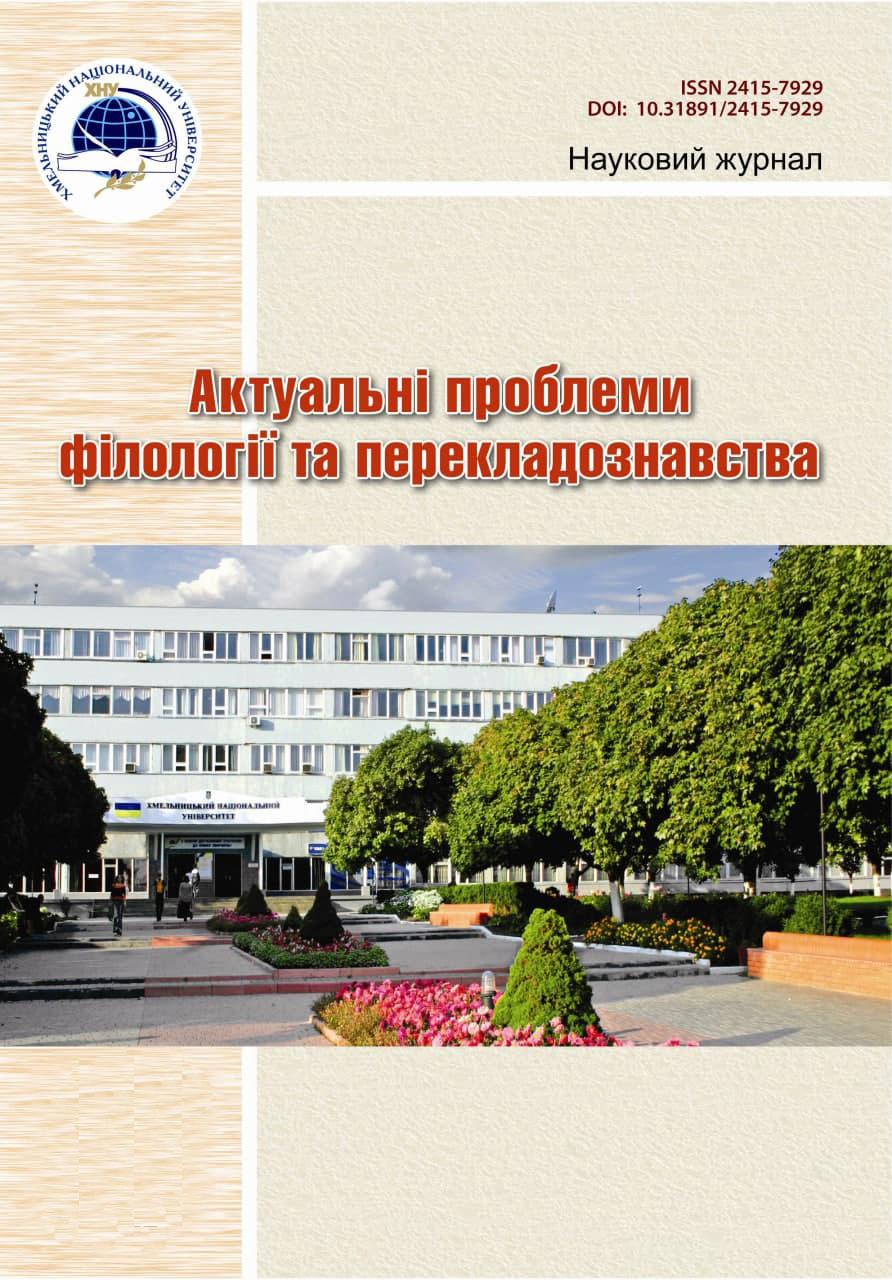THE ROLE OF SOCIOLINGUISTIC KNOWLEDGE IN THE PROCESS OF FORMING THE COMMUNICATIVE COMPETENCE OF POLITICAL SCIENCE AND TOURISM SPECIALIST STUDENTS
DOI:
https://doi.org/10.31891/2415-7929-2023-29-5Keywords:
communicative competence, sociolinguistic competence, professional speech, language situation, state language, language awarenessAbstract
Mandatory requirements for political scientists and tourism specialists are the desire to communicate, the ability to easily come into contact with other people, language, facial expressions and gestures mastering, the ability to listen, the ability to find a common language with different people, the ability to convince and find a compromise in relations between people. All of the above constitutes communicative competence, the high level of which can be achieved precisely in during Ukrainian professional speech classes. In the process of native language training of humanities students, it is necessary to actualize a sense of personal responsibility for the state of the language and its full functioning in society and the chosen field of activity, which involves a responsible attitude to one's own speech, systematic work on deepening knowledge about the sociolinguistic aspects of the functioning of the state language.
In this context, the question of the linguistic didactic aspect of improving the sociolinguistic component of the future specialist's communicative competence seems relevant. Within the framework of acquiring sociolinguistic competence, students should master the following concepts: "language policy", "language legislation", "language situation", "identity", "language practice", "attitude towards language", "state language", "minority language" ", "the language of the indigenous people", etc.
Improving the sociolinguistic training of political science and tourism students can be facilitated by tasks with the following types of work: analysis of professional texts, analysis of political materials on the Internet, familiarization with literature devoted to the social history of the Ukrainian language, research of the linguistic situation in the market of tourist services in Ukraine and the world, analysis of the communicative behavior of Ukrainian politicians, participation in discussions, debates, round tables devoted to various issues of the interaction of language and society, etc.
Downloads
Published
Issue
Section
License
Copyright (c) 2023 Марія ГАВРИШ, Таїсія КОВАЛЬ (Автор)

This work is licensed under a Creative Commons Attribution-NonCommercial-NoDerivatives 4.0 International License.

